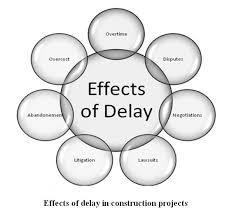 As I start working with new clients, I seek to understand how I can best help them?
As I start working with new clients, I seek to understand how I can best help them?
What do they expect to gain from me? I know they want a project schedule developed and approved for use on the project. That’s only part of it…….
A large part of what we do, as a planning and scheduling professional consultant, is add to our clients’ knowledge base. We teach the importance of using schedule best practices, ways to better manage and use the schedule, and how to better understand what the schedule update is telling us.
I enjoy all of it.
I believe that we, as planning and scheduling professional consultants, should also improve the clients’ understanding of scheduling in general. We should improve the clients’ ability to deliver the project. We should help the client understand better how the project schedule integrates with their cost and resource management.
What has your experience been?
Do most of your clients already integrate their project schedules with their resource and cost control practice? Do they only need your expertise with the software and schedule techniques?
Or, do you sometimes find your efforts resisted due to your clients’ lack of schedule knowledge or project management maturity? If so, how? And how do you deal with that?
Do you often feel pressured to develop the schedule based completely on best case scenarios? If so, how do you deal with that?
What client management techniques have you developed to better manage and help your clients with their schedule development and management?
I’d love to hear what you think!
Please visit https://conschmanservices.com to learn more about Construction and Schedule Management Services, LLC
Please visit my LinkedIn account to learn more about me.
Paul Epperson CCM, PMP, PSP, PMI-SP
 All projects run into change orders with time extensions and just plain old delay claims.
All projects run into change orders with time extensions and just plain old delay claims.